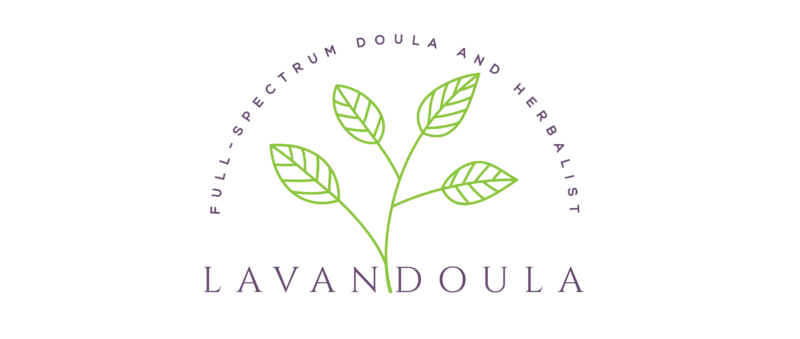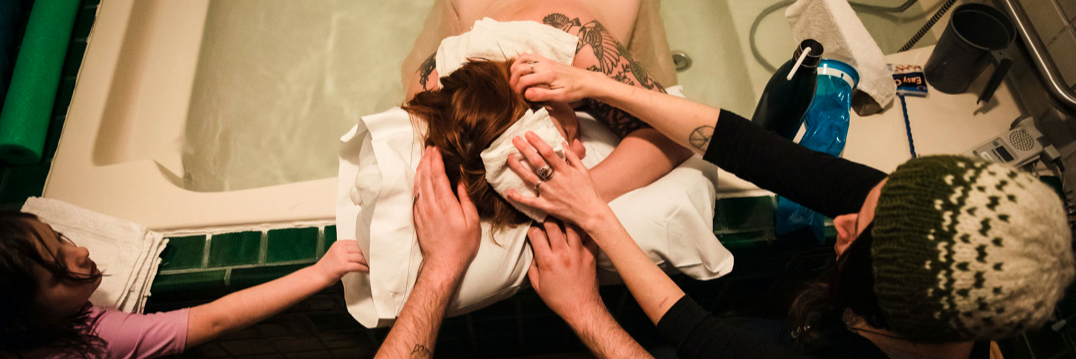In 2020, I’ll be launching a series of herbal classes on pregnancy topics, called Birthkeeper Herbalism. Interested folks will be able to sign up for the whole series, or one-off topics. More information will be posted on the website.
I am also becoming a certified childbirth educator through BACE (Boston Association for Childbirth Education). Upcoming herbal-informed and queer-centered childbirth classes will be planned in 2020.
I will still be attending births, but will take fewer families on in a given month. Repeat clients, hit me up! 😉
Materia Medica for Midwives
This was compiled for a class on the use of herbs for pregnancy, labor, postpartum and nursing for a group of professionals on the North Shore in June 2014.
Burdock (Articum lappa)– bitter, Encapsulation: cooling, liver support. Helpful for dry, itchy skin and eczema (though you must identify underlying issue) Safe for use in pregnancy. Eat as food or drink as tea. Prebiotic, contains inulin fibers that feed “good” gut bacteria.
Catnip (Nepeta cataria) – gentle, realaxing herb to calm anxiety, cool heartburn, rest those with insomnia and also useful in quelling nausea. Do not use if ragweed/daisy family allergy.
Chamomile (Matricaria chamomilla) – gentle, anti-nausea, especially when triggered by stress and anxiety. Good for cheap jerseys from China calm tea before bedtime. Stronger infusions make stronger Life antispasmodic properties for muscle cramping. Avoid in case of ragweed/daisy family allergy.
Crampbark (Viburnum opulus)– Antispasmodic for smooth muscle, such as the uterus. Can be used to alleviate menstrual cramps or potentially avoid threatened miscarriage in early pregnancy. High tannin content astringes and slows heavy bleeding.
Dandelion (Taraxacum off.) – mineral-rich, diuretic, useful for UTIs. Bitter flavor supports digestion (can be drunk as tea or eaten as food). Useful for pregnancy-induced hypertension because it drains edema without stripping body of minerals. Root of plant helps make iron more bioavailable, so great for anemics. Roasted roots taste pleasantly of coffee, but are not nearly as harsh on the system.
Dong Quai (Angelica sinensis)– Well-known uterine tonic. Can strengthen contractions but also its volitale oils can have a relaxing effect on the uterus. cheap nba jerseys (Think tea brewed with the top covered or left open). Not a good choice for wholesale nfl jerseys heavy bleeders, as it could increase bleeding.
Garlic (Allium sativum) – Useful for immune support during cold & flu when other drugs are undesirable. May cause strong taste in breastmilk, so be wary of overdoing it on if you’re nursing (only is a problem if infant doesn’t like taste and wont feed as often). Useful to boost immune before GBS test.
Ginger (Zingiber off.) – warming, stimulates blood flow to the pelvic area to alleviate blockages. Anti-nausea and safe for use during pregnancy. Antispasmodic properties can help alleviate menstrual cramps by relaxing smooth muscle (uterus)
Lady’s Mantle (Alchemilla mollis)– has sedative properties to alleviate cramps (contains salicylic acid). Alleviates excessively heavy flow, because of its high tannin content.
Lavender (Lavandula angustofolia) – drying, calming herb. Good for headaches, herbal baths. Antibacterial, essential oil can be added to massage oils (but not for hospital settings as many are scent-free).
Lemon Balm (Melissa off.) – cooling, relaxing herb that is safe for use during pregnancy. For HSV+, increase chance of vaginal birth by taking lemon balm tea in advance. Topically and internally helps fight viruses that attack the nerves, like herpes and HPV.
Nettle (Urtica dioica) – slightly cooling, drying. Diuretic, helpful for kidney issues, especially hypertension-induced edema. Useful to reduce proteinurea, overtaxed kidneys in pregnancy. Full of calcium, iron, and vitamin K: it’s food! Long cheap nba jerseys steep necessary to extract all minerals from the dried leaf. Absolutely necessary for vegetarians and anemics. Daily nettle replenishes magnesium, which Video relieves menstrual cramps.
Red Raspberry Leaf (Rubus spp.)– tonifying, mineral-rich plant with iron, calcium and magnesium. Long-steep tea. Much loved and recommended throughout pregnancy as SC a “uterine tonic.” Astringent, can stop excessive bleeding and calm intense cramping, lessen chances of postpartum hemorrhage.
Rose (Rosa rugosa)– Fruit of plant (rosehips) contain lots of vitamin C, which is useful in the winter months and have pleasant taste. Petals in tea or infused into massage oil make anyone feel special!
Shepherd’s Purse (Capsella bursa-pastoris)– well-known to stop hemorrhaging, either in childbirth or for heavy menses. Astringent, helpful for uterine prolapse (along with alignment exercises).
Yarrow (Achillea millefolium) – для Bitter, regulates flow of blood. Decreases heavy menstrual bleeding, especially combined with shepherd’s purse. Useful topically for wounds, so it’s great in a postpartum sitz bath. Also useful for fever.

